
Our charity was created after the 1981 Brixton Riots in London. Originally called the London Community Cricket Association, our charity used street cricket as a tool to promote community cohesion and peace in the heart of the Lambeth community.
We began setting up projects aimed at getting unemployed and directionless young people to train as coaches and community sports leaders.

Our Unemployed Leagues led to the development of the Haringey Cricket College which would later become the London Cricket College.
The project was a huge success, provided 25 first class cricketers including Mark Alleyne, Frankie Griffiths and Keith Piper in its first ten years. The programme also produced a network of talented inner city coaches who have since had established careers as professional coaches.

We then set-up training programmes and cricket clubs for women and girls which have since been replicated by many county cricket boards.
Several women who trained with us are now working as Development Officers with various counties and other sports bodies. Talented players including Ebony Rainford-Brent went on to play for England.

The London Schools Cricket Project was then developed and aimed to address the decline in school sport in the late eighties. It provided cricket to almost every primary school in London and many secondary and girls’ schools.
To provide experienced coaches we delivered coach education courses to over 300 coaches as part of our Inner City Coach Education Programme.
For five years we also ran the London Under 25’s, a representative team aimed at giving opportunities to players not known by the counties and giving them high quality training and matches against teams including Oxford University and English Universities.

On a completely different level we started to deliver ground-breaking work in a number of London’s prisons including Pentonville, Holloway and Wandsworth where we ran the first ever coach education course.
The course saw 15 inmates qualify as coaches, two of whom worked with us on our new Special Needs Programme following their release.

Our Special Needs Programme created inclusive sports opportunities for children and adults with a disability.
We became experts at creating new coaching techniques and new programmes supporting coaches, teachers and youth workers working with cricketers with a disability.
This included the setting up of the England Blind Cricket team to compete in the first ever blind cricket World Cup in India in 1998.

A significant event within our history was when we developed the Street20 cricket programme.
Street20 is a shortened version of cricket. It is played six a side, and takes 30-minutes to complete one game.
The flexibility of this game means it can be played on almost any surface including five a side football pitches, basketball courts and school playgrounds. The game is easy for non-cricket experts to teach, and requires only a bat, ball and stumps to play.
Street20 provides the ideal platform to deliver advice and support to young people through combining youth work and cricket coaching. This coaching-mentorship approached would go on to inspire out future programmes.

In the summer of 2001, we were commissioned by the Home Office to run crime diversion programmes on a dozen inner city estates in London that were seen to be at risk of social unrest.
These programmes eventually developed the Housing Estates Programme which later worked with young people from some of London’s most deprived housing estates.

In 2003 we began working on international programmes. We travelled to Barbados to set up the West Indies Blind Cricket Team by teaching coaches how to deliver the programme.


In 2006 the Cuban Cricket Partnership was launched with the Foreign and Commonwealth Office and the Cuban Cricket Association.
We delivered coach education courses, facility development support, networking support and disability awareness training.

In 2007, we launched a post civil war programme in Rwanda in partnership with the Foreign and Commonwealth Office.
The programme used Street20 to train sports leaders how to run rehabilitation through sport programmes with children affected by the civil war.

In 2008 we launched a Blind Cricket programme in Panama in partnership with the Panamanian Government.
The programme trained sports coaches and teachers to run sports programmes for disabled children and adults.

We went to Sierra Leone where we worked in partnership with UNICEF to train Street20 leaders to deliver sports rehabilitation programmes to children affected by the civil war.

In 2008 our charity rebranded to become Cricket for Change. We specialised in delivering high impact social change cricket programmes in the UK.
These programmes included:
- StreetChance - This ran in partnership with Chance to Shine.
- Hit the Top – A specialist cricket programme for young people with a disability.
- Street Team - A cricket programme delivered to young offenders in prison which helped them find employment on their release.
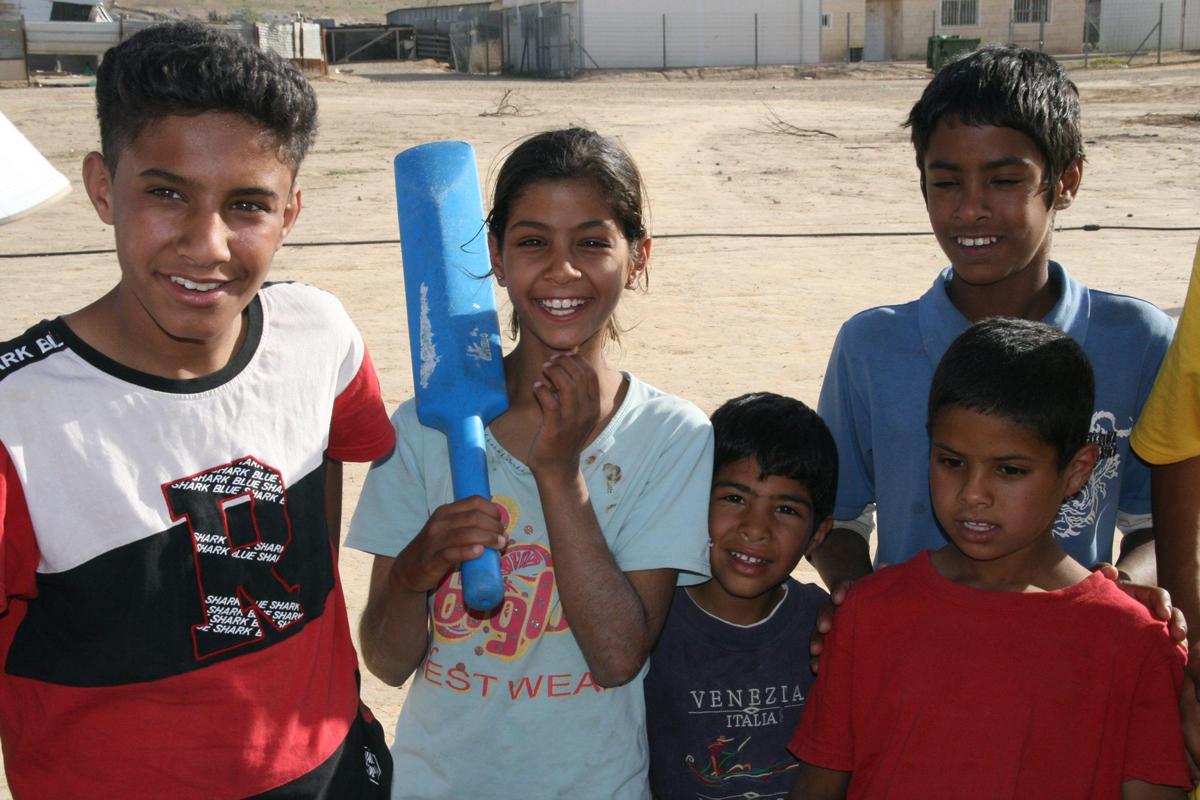
In 2009, we delivered a series of international Street20 cricket programmes and partnerships which included...
The Europe Project - This launched in partnership with the International Cricket Council in Greece, Spain, Netherlands, France, Ireland and Serbia.
Partnership with Peres Centre for Peace in Israel and Palestine - This involved training sports coaches and teachers how to use Street20 cricket to bring children from different communities together.
Partnership with the Courtney Walsh Foundation launched in Jamaica which used cricket to help rehabilitate young offenders and support them back into their communities on release from prison.
‘Catch the Spirit’ partnership with UNICEF and the ICC launched in Afghanistan, Bangladesh and Sri Lanka which trained female and male coaches to use cricket to have a social impact with vulnerable girls and boys.

In 2009, we created the Refugee Cricket Project; a specialist project run in partnership with the Refugee Council in South-London.
The project engages children seeking asylum by giving them the chance to develop their cricket skills and meet their friends in a safe environment.
This programme allows coaches and professionals to deliver mentorship and support regarding welfare issues and asylum claims.

In 2010 we developed a partnership with NYPD in New York and trained their officers to use cricket to build relationships with communities from a South-Asian background.
This was followed by a ‘Rehabilitation Through Cricket’ programme that was launched in partnership with UNICEF and was rehabilitated former child soldiers in Sri Lanka.

In 2011 we developed our Street Elite programme in partnership with Berkeley Foundation.
Street Elite works with young people who are not in education, employment or training and helps them into work.
Many young people on the Street Elite programme are at risk of becoming involved with gang and knife crime. Mentorship and positive work opportunities help young people to avoid offending and to exercise their full potential in life.


In 2012, we partnered with Rugby World Cup Winning and former England Captain Lawrence Dallaglio and his foundation the Dallaglio Foundation.
We supported the Dallaglio Foundation in launching the Rugby 4 Change programme.
Rugby 4 Change employability education programme using rugby in Pupil Referral Units for young people at-risk of exclusion.
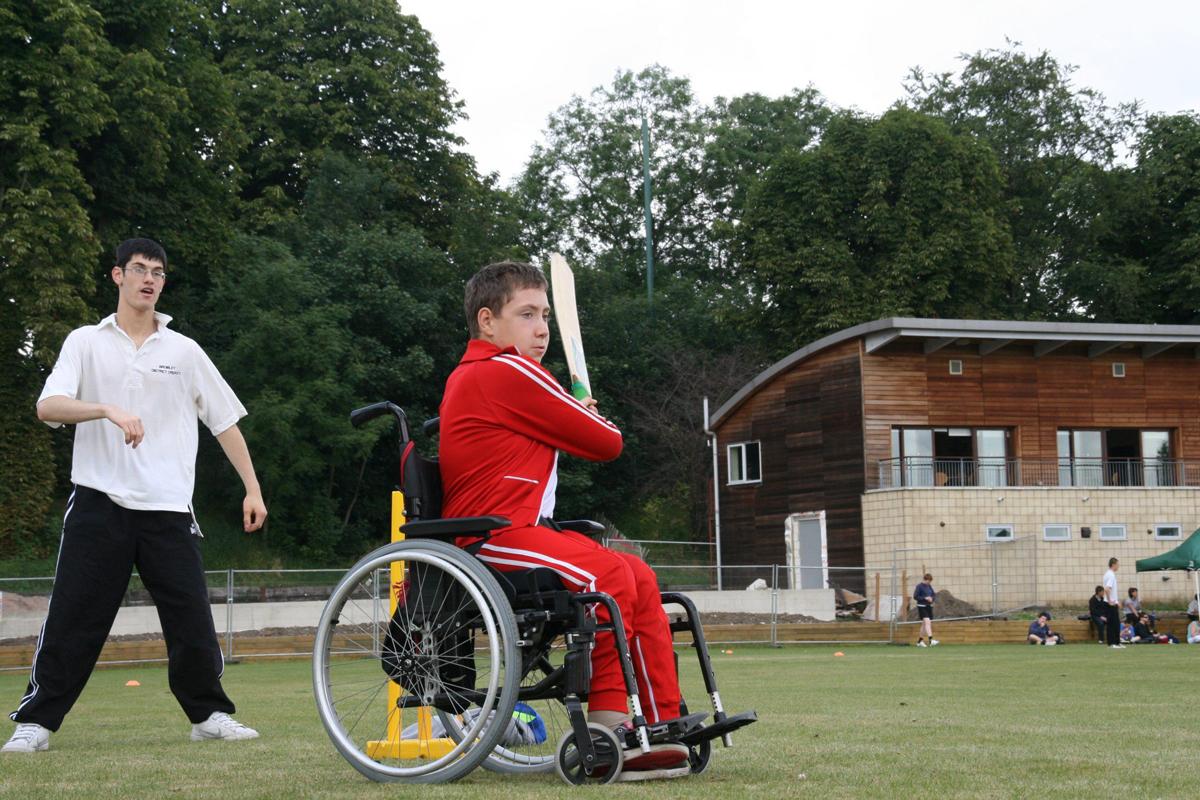
In 2012, we launched a Street20 national programme in partnership with the Lord’s Taverners.
On this programme we trained county board coaches and community groups deliver cricket programmes to young people with a disability and at-risk young people.

In 2014 Cricket for Change was rebranded as The Change Foundation.
The name was chosen as it reflected our open approach to developing our programmes to accommodate the ever changing needs of young people.
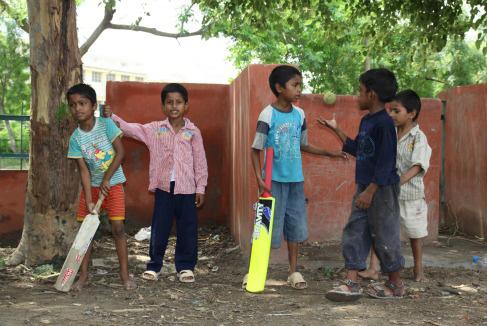
In 2015, our partnership with Magic Bus in India launched a new Street20 cricket programme which trained coaches on how to engage and support street children with a disability.

In 2016 we worked in partnership with Rugby World Cup Winning Springbok legend Bryan Habana. Together we launched the Team Habana programme in London.
Team Habana is a youth leadership programme promoting social action through the values of rugby.
We later launched the programme in Cape Town, South Africa in 2018.

2016 saw a clear focus on the development of programmes for girls and young women within our charity.
That year we launched three life changing programmes working with vulnerable and marginalised girls and young women. These programmes included...
- Girls Win – A multisport goal setting programme for young women with a disability.
-Dance 4 Change – A dance therapy programme supporting young women with mental health problems.
-Generation STORM – A fitness and well-being mentoring programme for young women affected by the care system.

In 2016 we launched a programme for Syrian refugees in Lebanon in partnership with Muslim Hands. We used Street20 cricket to bring stability and positivity to the lives of traumatised children living in the Bekaa Valley.

We were commissioned by the Tennis Foundation (now merged with the Lawn Tennis Association) to design and develop a tennis programme that improved self-confidence, health and community togetherness.
We designed the SERVES Social Change programme which is now delivered in 100’s of tennis sites across the UK.

In 2017, we designed and delivered the first sports programme in the UK tackling social media safety.
The programme called Netball 4 Change, works with young women aged 11 – 17 in Newcastle, London and Bristol.
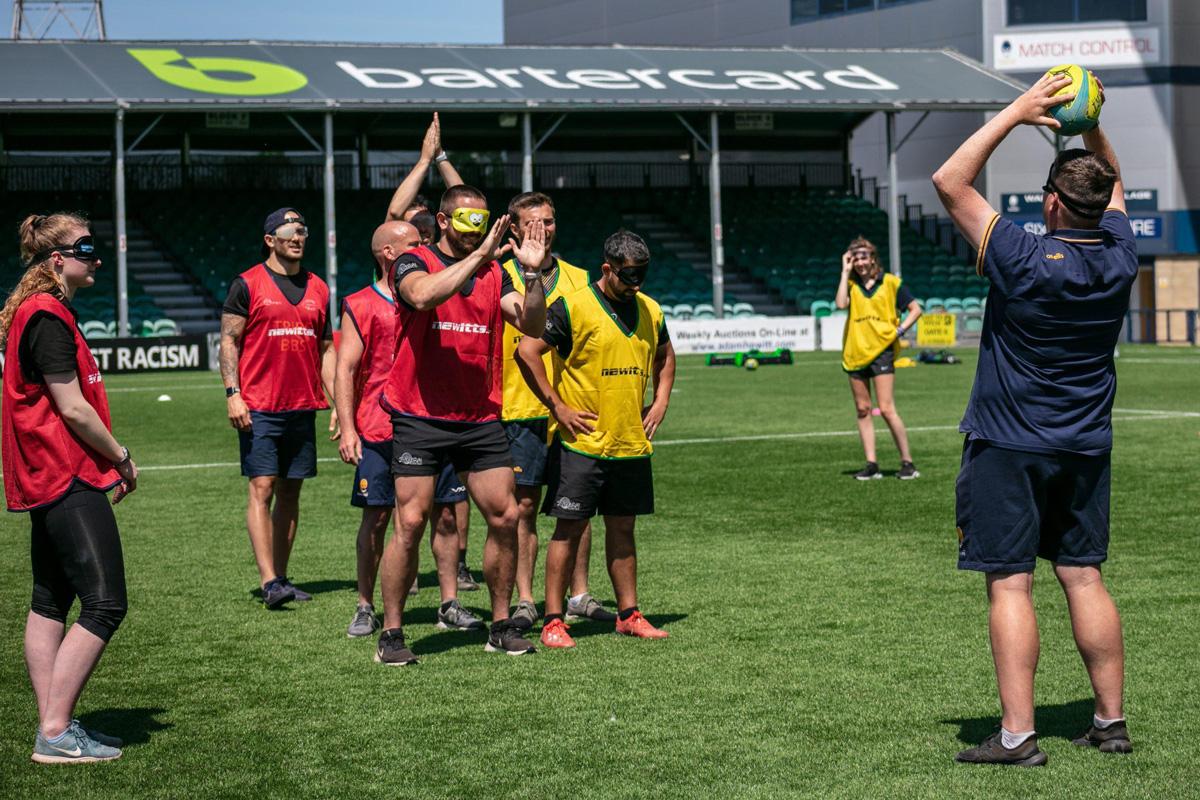
In 2017, we launched our Visually Impaired Rugby programme.
The programme adapts the rules of touch rugby to accomodate the abilities of people living with visual impairments.
Our programme has successfully engaged with V.I Rugby players across the UK and across the world after we successfully training coaches in Japan and New Zealand.

In 2017, we launched our Visually Impaired Rugby programme.
The programme adapts the rules of touch rugby to accomodate the abilities of people living with visual impairments.
Our programme has successfully engaged with V.I Rugby players across the UK and across the world after we successfully training coaches in Japan and New Zealand.

In 2019 we launched London Futures, an employability programme for young people with learning disabilities and mental health problems.
The programme helps the young people to become less socially isolated, find paid work and enrol in educational opportunities to help their future career prospects.
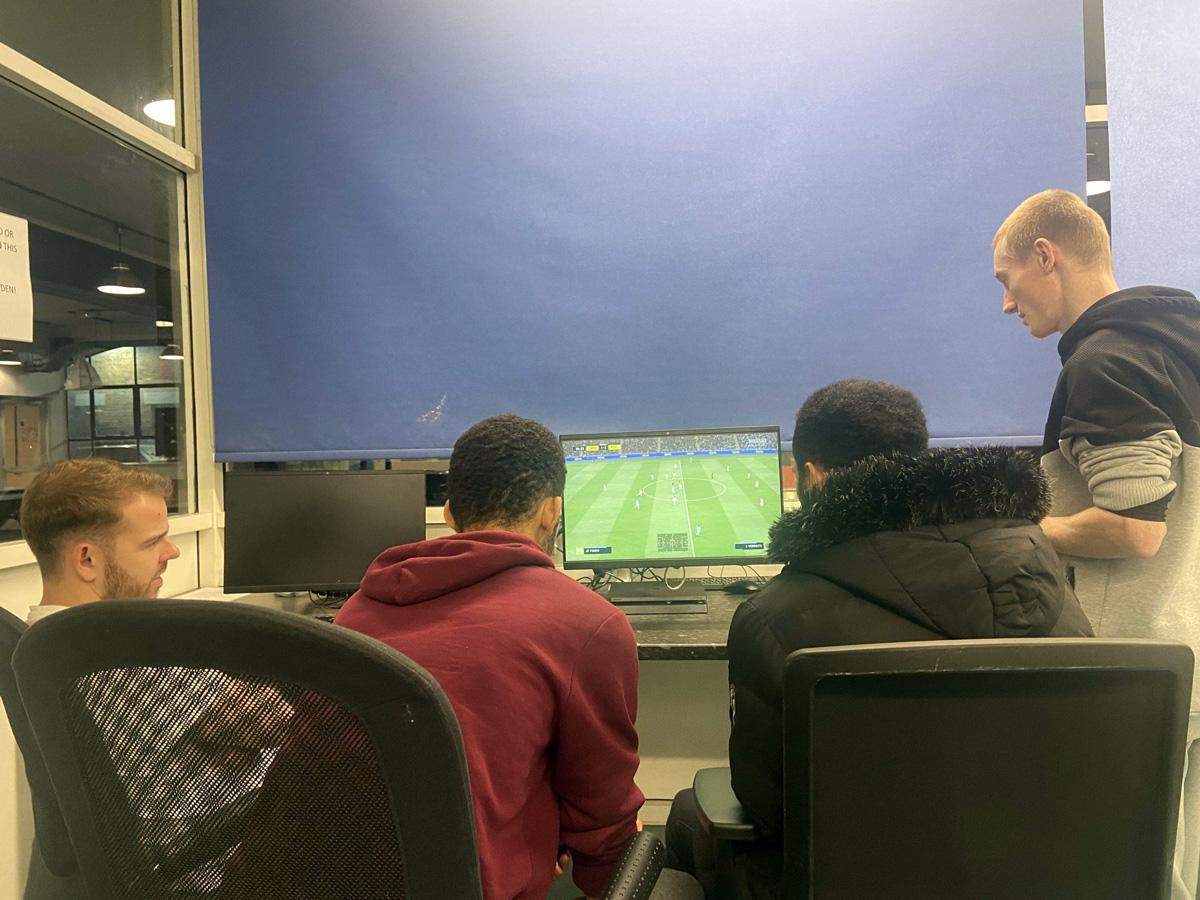
In 2020 we launched our E-Sports programme to help young people affected by mental health and loneliness in the pandemic.
Coming out of the global lockdown this programme continues to connect young people and provide them with a platform to develop lasting friendships.

In June of 2021 we launched our Intergenerational Table Tennis programme.
This programme connects the older and young generation through the power of table tennis. By providing a platform for lasting, reliable friendships to grow, this programme is also an exceptional way to help combat loneliness within the local community.
